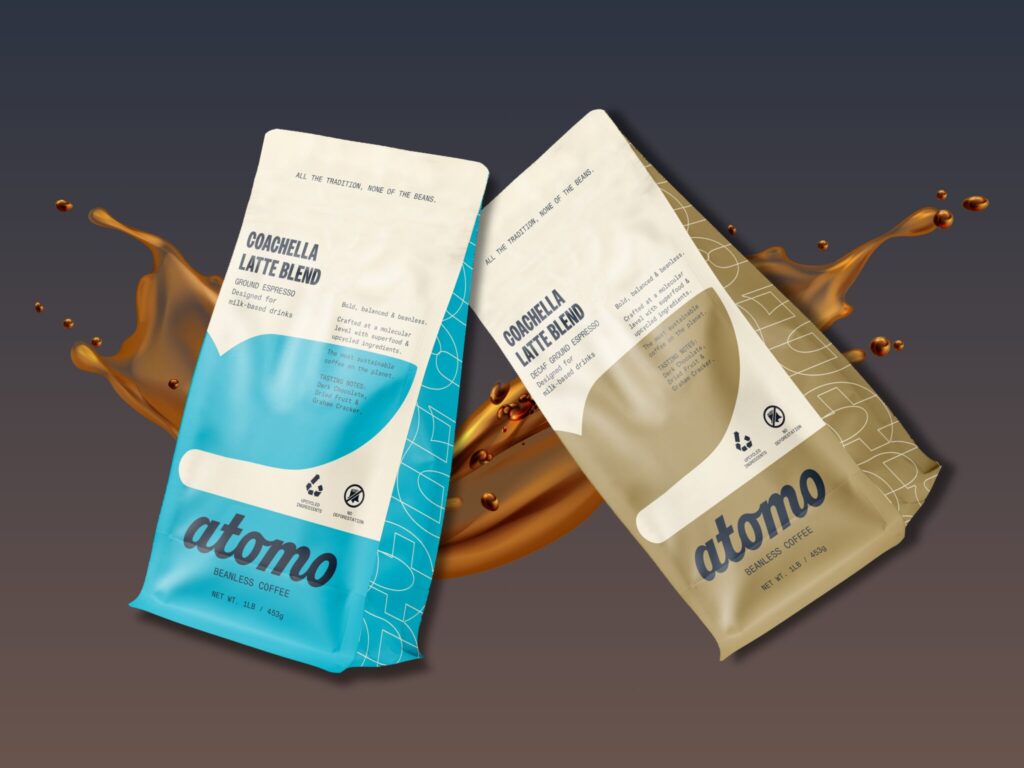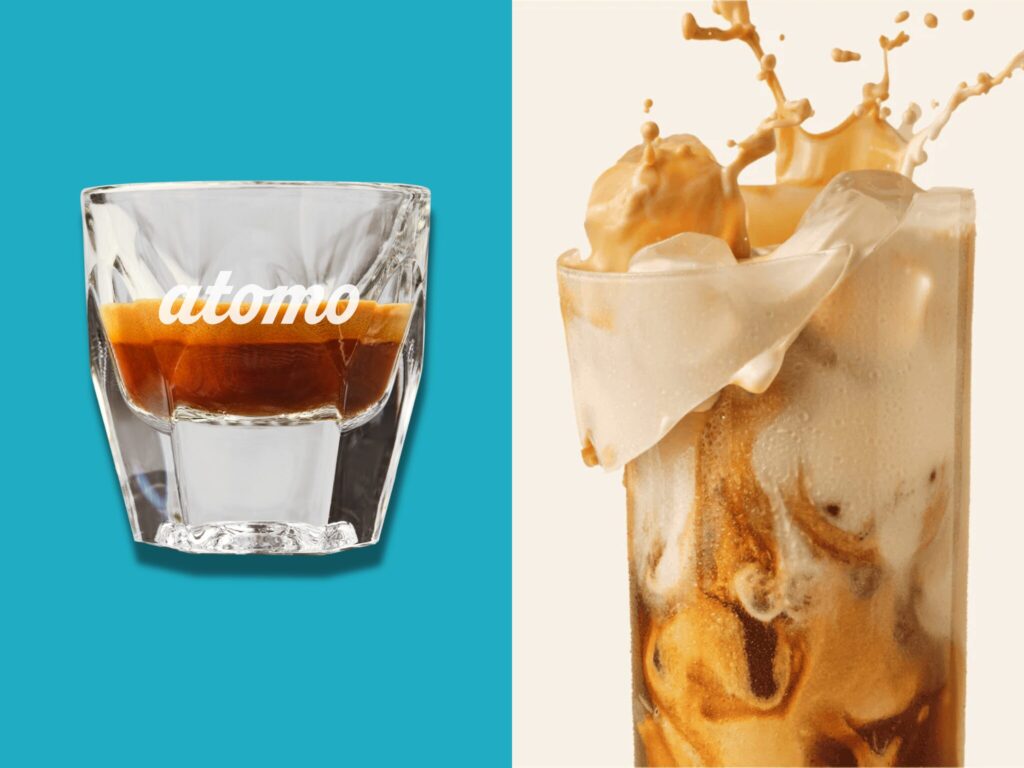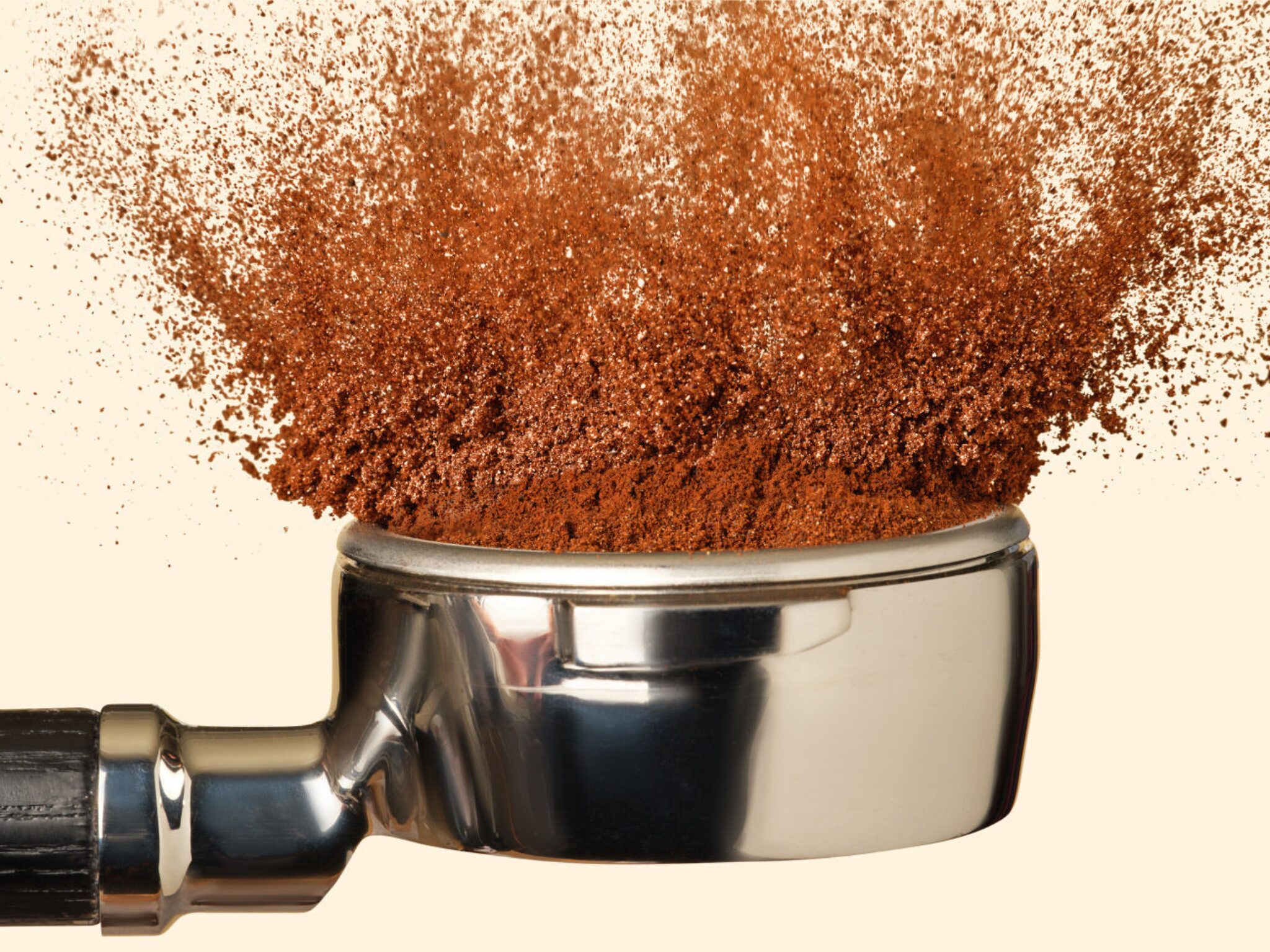Beanless Coffee Startup Atomo Opens Large Roastery as Upcycled Espresso Brews Up Specialty Café Partnerships
5 Mins Read
Seattle-based Atomo has opened a large-scale roastery for the production of its beanless coffee, just as it expands its presence in the US speciality coffee industry.
A pioneer of the molecular coffee space, Atomo has opened the doors to its 33,000 sq ft roastery, allowing it to produce four million lbs of beanless espresso grounds a year as it extends its footprint in specialty coffee shops across the US.
While it already operates a smaller facility for its canned cold brew, Atomo reached a breakthrough in its espresso tech and pivoted its attention to these grounds instead. At full capacity, the new roastery would be able to supply around 2,000 coffee shops, with the goal of generating enough buzz to support a capital raise for the construction of a new factory that could produce 40 million pounds of product annually.
“Opening our roastery is a significant step for us. We love coffee and created our beanless espresso so that shops and cafés around the world could expand their specialty drink options; a great tasting coffee that’s better for the planet,” CEO Andy Kleitsch, who co-founded the brand with Jarret Stopforth in 2019, told World Coffee Portal.
Using upcycled ingredients to solve coffee’s climate problem

Atomo has been a pioneer of the beanless coffee industry, starting with a line of canned cold brews. The new roastery can help it deliver different forms of coffee, from drips to pods, but it is starting with ground ‘beans’. Launched in October last year, these are designed for professional espresso machines with nine to 12 bars of pressure.
“We chose that because that is probably the best customer experience that you can have surrounding coffee – going to a café and having a barista make you a beautiful drink,” Kleitsch told GeekWire. “We really wanted our product to be featured in that way when we first launched.”
A number of beanless coffee startups have popped up in recent years as the future of the crop is threatened by the effects of climate change. The amount of arable land for coffee-growing is set to be halved come 2050, while 60% of coffee species are endangered. The most famous one of them, arabica, could actually go extinct by 2080. Yields have already begun declining, which has naturally affected prices too.
Coffee itself is also a highly polluting crop, trailing only dark chocolate and red meats like lamb, mutton and beef on the list of foods with the highest emissions. This has birthed efforts to create alternatives that are more friendly to the planet and less susceptible to its volatility. Companies like Northern Wonder (Netherlands), Voyage Foods, Minus (all US) and Prefer (Singapore) are all vying for the beanless market, while startups such as Stem (France) and Pluri (Israel) are recreating coffee beans in labs. Meanwhile, French player Amatera is leveraging molecular biology and crop genetics to develop perennial coffee crops.
Atomo – which worked with watermelon and sunflower seeds in its early days – now uses upcycled date pits, ramon seeds, sunflower seed extract, fructose, pea protein, millets, lemon, guava, defatted fenugreek seeds and baking soda to make its beanless espresso products, which are available both as a caffeinated and decaf option. The former obtains its caffeine from green tea. The final product generates 83% fewer carbon emissions and uses 70% less farmland than conventional espresso.
The company takes date pits from Coachella Valley farmers that are destined to be thrown or burnt, and cleans, washes, dries and granulates them to be used in its roastery. “Date pits by themselves don’t taste like coffee, but we infuse them in a marinade and add heat to create what we call the cross Maillard reaction to generate the coffee compounds we’re searching for,” Kleitsch told AgFunderNews.
Targeting flavour to woo coffee drinkers

Atomo recently closed a funding round that brought total investment in the startup to $53M. Early last year, it underwent a strategic realignment and restructuring that saw an unspecified number of employees let go from their positions. “Our strategic realignment and restructuring will mean adding new staff with specialty skills that will enable us to more quickly scale our vision of providing sustainable coffee products to the masses,” Kleitsch said at the time.
One criticism levelled upon beanless coffee is the impact on farmers – the industry has 125 million people whose livelihoods depend on the crop. On its website, Atomo addresses this issue, noting that a transition to a scale large enough to displace farmers (which it states isn’t its goal) is very unlikely. “Coffee consumption worldwide is growing at a rapid pace forcing coffee farmers to increase production,” the company says. “To increase production along with changing climate conditions is forcing them to expand their growing areas which leads to deforestation and increased water consumption.”
The company’s products currently sell for $20.99 per lb in wholesale, which is quite the price premium. But Kleitsch told AgFunderNews that “pricing hasn’t been an issue”. The real consumption factor lies in the flavour. If it doesn’t taste good, products like Atomo’s will bomb.
“We have created something that’s less bitter with more chocolate, dried fruit and graham cracker notes.,” argued Kleitsch. “It’s drinkable. It’s approachable, and you can dial up or down the caffeine, which we get from green tea; you don’t get the jitters you can get from regular coffee.”
He noted that a majority of consumers don’t like acidity and bitterness in coffee, and mask it with cream or sugar. “We’re creating a product that addresses a lot of the problems consumers have with coffee, but with the mouthfeel, aroma and taste they expect,” he explained. “It’s our experience that consumers that typically don’t like black coffee can drink our coffee black. But we’ve also formulated it to blend perfectly with milk and creamers, so you don’t get flocculation when you add dairy or plant-based milks.”
Kleitsch can back up these claims by pointing to Atomo’s growing roster of stockists. Its website lists 11 coffee shops that sell its bean-free espresso, but just this week, it inked a deal with Australian-inspired specialty coffee chain Bluestone Lane, which will carry the espresso at all its 58 locations nationwide starting in August. Atomo also has deals brewing up with additional clients in Boston, Los Angeles, Chicago, Austin, Seattle and New York City.




